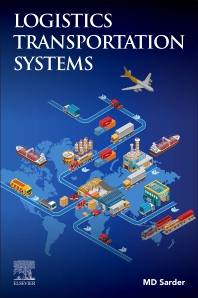
Introduction to Homeland Security
- 6th Edition
- October 28, 2020
- George Haddow + 2 more
- English
- Paperback9 7 8 - 0 - 1 2 - 8 1 7 1 3 7 - 0
- eBook9 7 8 - 0 - 1 2 - 8 1 7 1 3 8 - 7
The Social Sciences collection forms a definitive resource for those entering, researching, or teaching in any of the many disciplines making up this interdisciplinary area of study. Written by experts and researchers from both Academic and Commercial domains, titles offer global scope and perspectives.
Key subject areas include: Library and Information Science; Transportation; Urban Studies; Geography, Planning, and Development; Security; Emergency Management.









